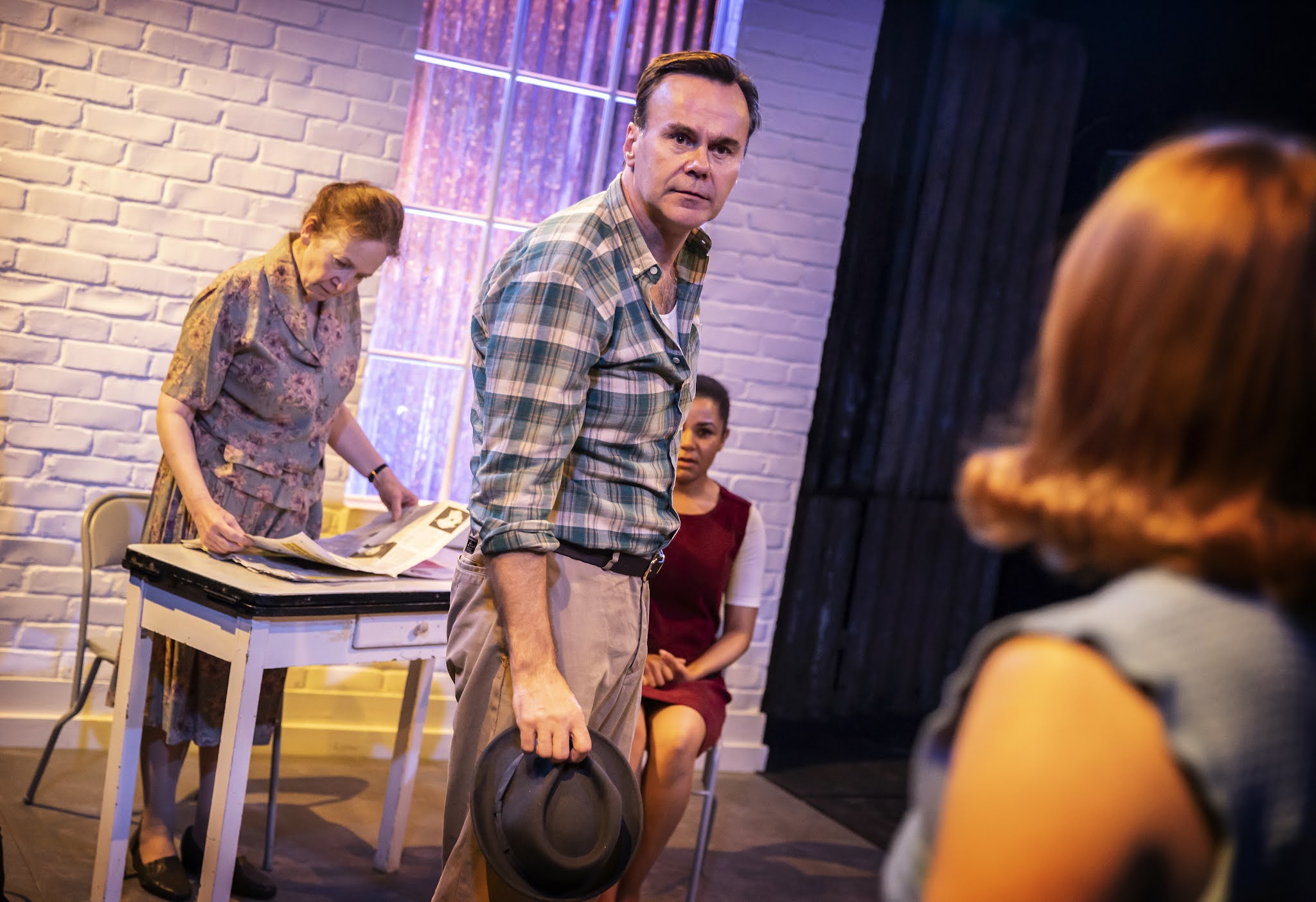Alana Valentine’s The Sugar House, making its European premiere, takes us through three generations of the Macreadie family in Pyrmont, Sydney, Australia, who live in the shadow of a 1960s sugar factory. We first meet Narelle (Jessica Zerlina Leafe) in 2007, viewing the apartment building the sugar factory has been transformed into through 21st century gentrification. From there, two extended flashbacks give us the history of her family and the challenges that shaped them.
The gentrification of the working class Pyrmont is one of the two key themes Valentine employs as framing devices, the other being the legal battle to outlaw capital punishment, with the last man hanged in Australia a significant plot point in the first half and the attempts to remove the last vestiges of outdated laws in the second.
 |
| Patrick Toomey (centre) and the cast of The Sugar House. Photo: Pamela Raith |
However, there are more; growing up in poverty, the conflicts of social mobility, privilege, police corruption, heritage, ‘bad blood’, justice – the play is bursting at the seams with themes, to the detriment of the family drama at the play’s heart. And while the play rages against injustice it seems to acknowledge that raging doesn’t always work – sometimes a law degree is more useful when it comes to changing the law, as Narelle discovers.
Under Tom Brennan’s direction, the 40 years time span is deftly covered – his direction and the acting is what makes the play worth watching. Janine Ulfane is excellent, giving an extremely believable, and sometimes moving, performance as the tough, old matriarch of the family, Narelle’s Grandmother June. Meanwhile, Patrick Toomey excels as Narelle’s gentle giant of a Grandfather, while managing to carve out unique identities for each of the other roles he plays; a doctor, a policeman, two different politicians.
 |
| Janine Ulfane. Photo: Pamela Raith |
Leafe’s role is the most challenging, particularly in the first half where she plays 8-year-old Narelle in the first flashback to the 1960’s. It is always difficult to maintain the illusion of an adult playing a child and, despite Leafe’s considerable efforts, it inevitably becomes caricature-like.
The raging punk-rock-styled university-attending Narelle of the second flashback becomes a caricature too, through little fault of Leafe’s, with all the standard tropes of youth in the 80’s – greasy hair, red checked shirt, army overshirt, pin buttons, alcohol, tattoos on bums, rebellious, problems with authority, student activism, demonstration marches – no stereotype is missed by Valentine. It’s the same problem as the play’s themes – Valentine tries to fit everything in.
Somewhere amongst it all there’s a brilliant kitchen sink drama fighting to get out.
The Sugar House is at Finborough Theatre until 20 November.














